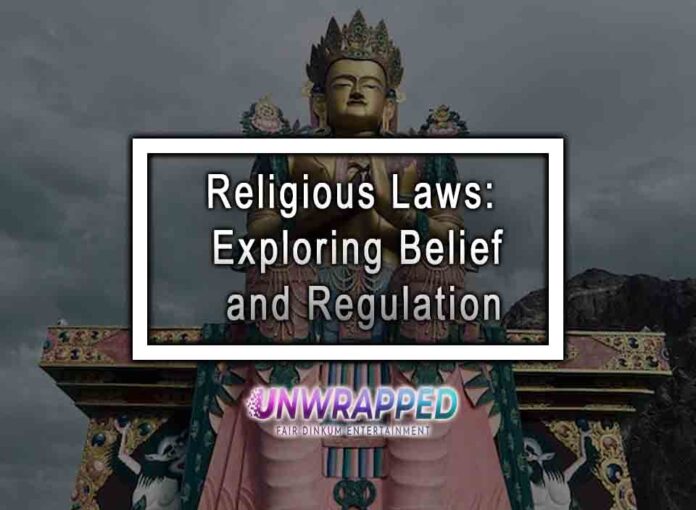Exploring the Intersection of Faith and Regulations
In the tapestry of human culture, religious laws have woven intricate patterns that influence how societies function, how individuals lead their lives, and how traditions endure. Beyond rituals and prayers, these laws wield the power to mold ethical standards, dietary practices, and legal systems. Embark on an enlightening journey with us as we unravel captivating religious laws and their profound implications, offering a glimpse into the harmonious blend of spirituality and governance.
1. The Halal and Kosher Dietary Laws: Beyond Sustenance
When it comes to nourishment, the Halal dietary laws in Islam and the Kosher dietary laws in Judaism stand as pillars of guidance. Far from being mere culinary codes, these laws instill mindfulness in consumption. Delve into the significance of these regulations, which extend to animal welfare, humane practices, and a heightened connection to the world of sustenance.
2. The Five Ks of Sikhism: Adornments of Devotion
Sikhism’s Five Ks, a set of articles of faith, serve as both symbols of identity and expressions of spiritual devotion. From the uncut hair (kesh) to the ceremonial dagger (kirpan), each “K” represents a tenet of Sikhism, fostering unity among adherents. Traverse the meaning behind these visual markers and witness how they serve as a testament to Sikh values and solidarity.
3. Sharia Law: Faith, Morality, and Governance
Sharia, the Islamic legal framework, extends its reach from personal piety to matters of justice and governance. Journey through the multifaceted facets of Sharia law, from family dynamics to criminal jurisprudence. Uncover the nuances of its implementation across different cultures and its role in shaping discussions on religious freedom, human rights, and societal ethics.
4. Amish Ordnung: Guiding Principles of Simplicity
The Amish community’s Ordnung, an unspoken code of conduct, shapes every facet of daily life. From technology use to clothing choices, this unique set of rules reflects a commitment to simplicity and community cohesion. Immerse yourself in the Amish way of life, exploring the delicate balance between traditional values and the modern world.
5. Hindu Caste System: Tradition, Equality, and Change
The Hindu caste system, a complex social hierarchy, has deep historical roots that extend into modern times. Investigate its origins, purpose, and how it continues to impact social dynamics, education, and opportunities. Unearth the ongoing conversations surrounding caste-based discrimination, social justice, and efforts to foster inclusivity.
6. Canon Law in Christianity: Spiritual Governance and Community
Christianity’s Canon Law lays the groundwork for church governance, outlining matters ranging from clergy conduct to sacraments. Dive into the intricacies of Canon Law and its role in preserving religious doctrine, maintaining church order, and addressing contemporary issues. Explore the balance between spiritual leadership and legal structures.
A Tapestry Woven with Belief and Regulation
As we traverse the diverse landscapes of religious laws, we encounter the delicate interplay between faith and regulations. These laws, each a unique thread in the fabric of human existence, reveal the intricate ways in which beliefs are translated into action. From the intimate choices we make in our diets to the broader structures that govern societies, religious laws continue to leave an indelible mark on our world. By understanding their implications, we gain a deeper appreciation for the profound synergy between spirituality and the human experience.










